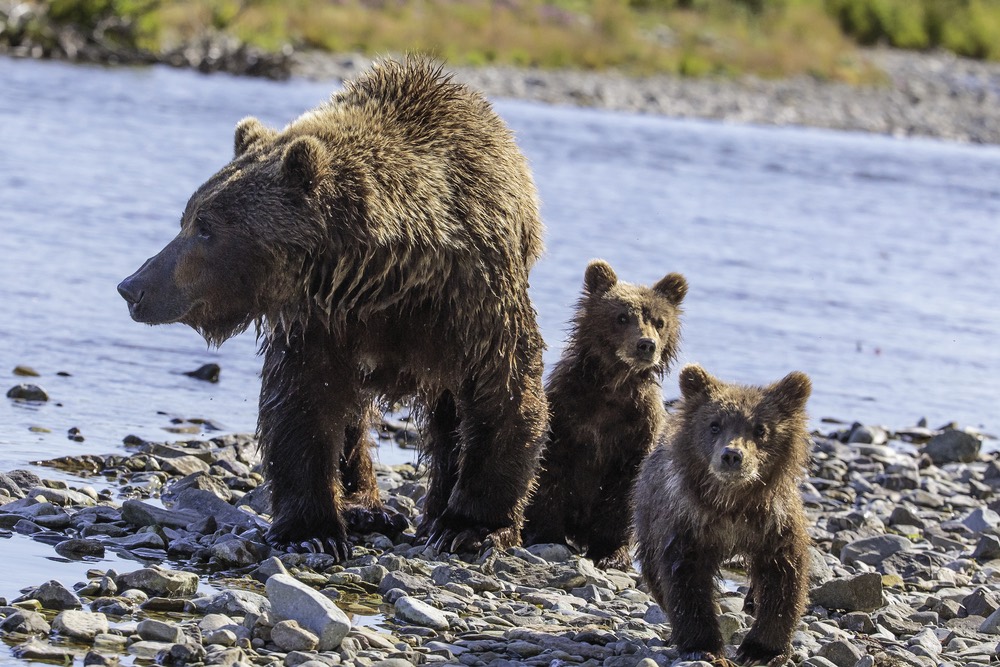Senate Votes to Allow Hunting of Grizzly Bears in Alaska Refuges

Get the world’s most fascinating discoveries delivered straight to your inbox.
You are now subscribed
Your newsletter sign-up was successful
Want to add more newsletters?

Delivered Daily
Daily Newsletter
Sign up for the latest discoveries, groundbreaking research and fascinating breakthroughs that impact you and the wider world direct to your inbox.

Once a week
Life's Little Mysteries
Feed your curiosity with an exclusive mystery every week, solved with science and delivered direct to your inbox before it's seen anywhere else.

Once a week
How It Works
Sign up to our free science & technology newsletter for your weekly fix of fascinating articles, quick quizzes, amazing images, and more

Delivered daily
Space.com Newsletter
Breaking space news, the latest updates on rocket launches, skywatching events and more!

Once a month
Watch This Space
Sign up to our monthly entertainment newsletter to keep up with all our coverage of the latest sci-fi and space movies, tv shows, games and books.

Once a week
Night Sky This Week
Discover this week's must-see night sky events, moon phases, and stunning astrophotos. Sign up for our skywatching newsletter and explore the universe with us!
Join the club
Get full access to premium articles, exclusive features and a growing list of member rewards.
The U.S. Senate voted, mostly along party lines, on Tuesday (March 21) to abolish a regulation that prohibited certain types of hunting in Alaska national wildlife refuges.
In the 52-to-47 vote, the Senate used the Congressional Review Act (CRA) to overturn a so-called midnight regulation that President Barack Obama's administration passed in their last hours in office last year. (Under the 1996 CRA, Congress can, in an expedited fashion, eliminate any regulation, which then can't be reinstated in a "substantially similar" form, according to an article in the Washington Post.
The justification for the abolition was that states, not the federal government, should shape regulations regarding wildlife within their borders, according to the Washington Post. [Should We Hunt Yellowstone Grizzly Bears? (Op-Ed)]
Sen. Martin Heinrich, D-N.M., opposed the effort to abolish hunting regulations in Alaska refuges, saying at the hearing that in his view the new law would "turn back the clock 100 years on the management of our native wildlife on our national wildlife refuges in Alaska."
The new resolution would allow trapping, baiting and aerial shooting of wildlife, such as wolves and grizzly bears, on Alaska's refuges, the Washington Post reported.
Rather than supporting hunters, "what the CRA before us in my view puts at risk when you vote to put the federal stamp of approval on methods of take that the public views as objectionable even unethical, when you allow that ideologically driven style of game management to even permeate the sanctity of our national wildlife refuges, I don't think that's standing up for hunters," Heinrich said at the hearing. "I fear that it's endangering the future of something that is critical to culture and way of life."
The National Rifle Association, the Alaska Department of Fish and Game and the Alaska chapter of the Safari Club International all backed the overturning of the hunting regulations, according to the Post.
Get the world’s most fascinating discoveries delivered straight to your inbox.
The Sierra Club issued a statement strongly opposing the overruling. "Now hunters can kill grizzlies and wolves on Alaska's wildlife refuges, including mother grizzlies with their cubs, and wolves with their pups in their dens. State wildlife officials can even shoot at grizzly bears from helicopters," they said.
Some senators and others who support the new resolution suggest that by ridding areas of predators, such hunting will bring back dwindling wildlife prey populations, such as elk, moose and caribou. The problem, according to the Sierra Club, is that there's no scientific evidence to back up the idea that controlling predators brings back other wildlife.
"This resolution undermines science-based wildlife management and the basic premise of public lands as places for wildlife conservation," Alli Harvey, Alaska representative with the Sierra Club's Our Wild America campaign, said in the Sierra statement. "It overrides fundamental national environmental safeguards in the name of narrow special interests."
Original article on Live Science.
Jeanna Bryner is managing editor of Scientific American. Previously she was editor in chief of Live Science and, prior to that, an editor at Scholastic's Science World magazine. Bryner has an English degree from Salisbury University, a master's degree in biogeochemistry and environmental sciences from the University of Maryland and a graduate science journalism degree from New York University. She has worked as a biologist in Florida, where she monitored wetlands and did field surveys for endangered species, including the gorgeous Florida Scrub Jay. She also received an ocean sciences journalism fellowship from the Woods Hole Oceanographic Institution. She is a firm believer that science is for everyone and that just about everything can be viewed through the lens of science.
 Live Science Plus
Live Science Plus










